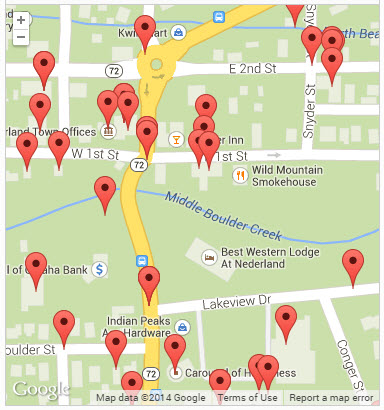Gov. Polis Announces State’s Economic Response to COVID-19
DENVER – Today, Governor Polis provided an update on Colorado’s response to COVID-19 and announced a number of actions the state is taking to support Colorado’s economy.
“This virus has significantly impacted our economy here at home and across the world. We know this has been challenging for our local businesses and workers, and we are working to provide relief including deferral of taxes and suspension of evictions to Colorado families and individuals. These times are difficult, but they are temporary. Coloradans should rest assured that we will get through this together and we will be well-positioned for success when this all blows over,” said Governor Jared Polis.
The Governor announced that the state will be taking action to provide relief from evictions, foreclosures, and utility shut-offs. The Governor is directing the Department of Regulatory Agencies (DORA) to work with state-chartered financial institutions to address the threat of residential and commercial foreclosures and displacement. The Governor is requesting that municipal and county governments refrain from using law enforcement to carry out evictions or foreclosures against Colorado families unless there is a threat to public safety. He is also encouraging banks, credit unions, and other financial institutions holding residential or commercial mortgages to follow the lead of the Federal Housing Finance Agency and halt foreclosures and related evictions that are due to income reductions because of the COVID-19 pandemic. In addition, the Governor is requesting these financial institutions consider providing a 90 day deferment of payment for all consumer loans, including residential and commercial mortgages, refinances, auto loans, and student loans, and small business loans. The state is also requesting that all public utilities suspend service disconnections for delayed or missed payments from residential and small business consumers.
The Governor is also requesting that all property owners and landlords refrain from removing tenants or mobile home owners without cause or as a result of late rent payment or minor tenancy violations through April 30, unless public safety requires it. Finally, he is asking that all property owners and landlords refrain from imposing a fee for the late payment or nonpayment of rent through the end of April.
The Governor will also be directing the Colorado Department of Labor and Employment’s (CDLE) Unemployment Insurance Division to expedite claim payments during this state of emergency. CDLE has seen a ten-fold increase of claims filed from last week to this week. Coloradans can visit the Department of Labor’s website at www.coloradoui.gov for more information. To learn more about these actions and read the executive order, click here.
Gov. Polis will also be extending the income tax payment deadline for all Colorado taxpayers by 90 days until July 15, 2020, without penalty or interest. This will be similar to the Internal Revenue Service (IRS) extension, but applies to any income tax payment, regardless of the amount. Unlike the federal government, the state is not imposing any caps on the amount of tax that can be deferred. In addition, the state will grant an extension for taxpayers who are required to make estimated income tax payments for the 2020 tax year. The Governor is also directing the Department of Revenue (DOR) to coordinate with local governments that choose to extend tax payment deadlines for property, sales and use taxes. To read the executive order, click here.
The Governor also announced the Governor’s Economic Stabilization and Growth Council. This group will be made up of community leaders from a variety of backgrounds and will serve as economic advisors to the Governor during this time.
Former Denver Mayor and U.S. Transportation Secretary Federico Peña will chair the Council.
Members include:
- Gary Arnold, Business Manager, Denver Pipefitters
- Deborah Jordy, Executive Director, Science and Cultural Facilities District
- Dick Monfort, Businessman, Owner/CEO, Colorado Rockies
- Blair Richardson, CEO Bow River Capital
- Jim Crowe, Former CEO, Level 3 Communications
- Brad Feld, Entrepreneur, Co-Founder Foundry Group, Co-Founder Techstars
- Dave Young, State Treasurer
- Cary Kennedy, Governor’s Policy Advisor
- Lauren Larsen, Office of State Planning and Budget (OSPB)
- Joe Barela, Colorado Department of Labor and Employment (CDLE)
- Rick Garcia, Department of Local Affairs (DOLA)
- Betsy Markey, Office of Economic Development and International Trade (OEDIT)
In addition, the Governor also signed an executive order allowing retailers licensed for the sale of on-premises alcohol consumption to sell, deliver or provide takeout for sealed alcoholic beverages if the customer also purchases food. The order also suspends the requirement of a physical examination for a medical marijuana card to be issued. The prohibition of online sales for retail marijuana stores is now suspended as well. Each of these are in effect until April 18, 2020. To read the executive order, click here.
Yesterday, the Governor announced that Colorado small businesses impacted by COVID-19 can now seek individual small business loans up to $2 million as part of the Small Business Administration’s Economic Injury Disaster Loan program. Small businesses throughout all 64 counties may seek SBA Economic Injury Disaster Loans. The SBA Disaster assistance provides low-interest federal loans for working capital to Colorado small businesses that have realized economic injury from COVID-19. Funding was appropriated through the US congressional Coronavirus Preparedness and Response Supplemental Appropriations Act. To learn more, visit OEDIT’s website.
To watch the full news conference, visit the Governor’s Facebook page.

